Exploring the Link Between our Environment and Health
There’s evidence suggesting that people who live close to green spaces live happier and healthier lives. But what are the specific effects that forests and nature have on our physical and mental health? Are there alternative therapies that involve the environment? Join us as a panel of experts explore the links between health, happiness and nature and discuss the importance of preserving our forests and green spaces.
Presented in partnership with UBC Faculty of Forestry, UBC Faculty of Medicine, and UNBC.
Watch the recording the of the event, which took place Wednesday, October 12th, 2016, here:
For pictures of the event, click here.
Moderator
Dr. John Innes – Dean, UBC Faculty of Forestry; Forest Renewal BC Chair in Forest Management
Panelists
Dr. Sandra Allison – Chief Medical Health Officer, Northern Health
Dr. Cecil Konijnendijk – Professor, UBC Faculty of Forestry
Dr. Matilda van den Bosch – Assistant Professor, UBC Faculty of Forestry & Assistant Professor, School of Population and Public Health, UBC Faculty of Medicine
Dr. Pamela Wright – Associate Professor, Outdoor Recreation and Tourism Management, Ecosystem Science and Management Program, University of Northern British Columbia
Speaker Biographies
Dr. John Innes
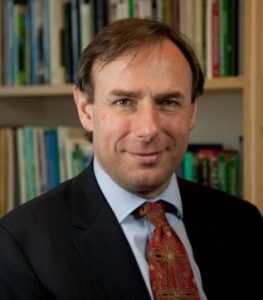 John Innes is Dean of the Faculty of Forestry at UBC. He grew up in Scotland and went to Cambridge University (in England). After working for the UK Forestry Commission for a while, he moved to Switzerland and worked there for 7 years. In 1999, he moved to UBC, having never previously been to British Columbia, where he took up the position of FRBC (Forest Renewal BC) Chair of Forest Management. He became Dean of the Faculty of Forestry in 2010. His research has covered a wide range of topics, including climate change, slope stability, forest management, the effects of forests on human well-being, and forest-dependent communities. As Dean, he has been encouraging the establishment of a new program at UBC in urban forestry. While much forestry has the aim of providing timber for a variety of uses, urban forestry is completely different: its most important product is the happiness of urban populations.
John Innes is Dean of the Faculty of Forestry at UBC. He grew up in Scotland and went to Cambridge University (in England). After working for the UK Forestry Commission for a while, he moved to Switzerland and worked there for 7 years. In 1999, he moved to UBC, having never previously been to British Columbia, where he took up the position of FRBC (Forest Renewal BC) Chair of Forest Management. He became Dean of the Faculty of Forestry in 2010. His research has covered a wide range of topics, including climate change, slope stability, forest management, the effects of forests on human well-being, and forest-dependent communities. As Dean, he has been encouraging the establishment of a new program at UBC in urban forestry. While much forestry has the aim of providing timber for a variety of uses, urban forestry is completely different: its most important product is the happiness of urban populations.
Dr. Sandra Allison
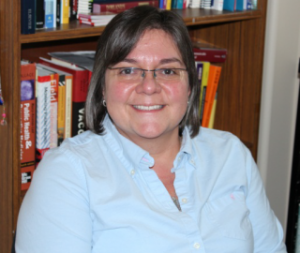 Dr. Allison joined Northern Health in June 2014 as Chief Medical Health Officer. She leads all public health programs in Northern Health, as well as advising the Executive Team and Board on public health issues.
Dr. Allison joined Northern Health in June 2014 as Chief Medical Health Officer. She leads all public health programs in Northern Health, as well as advising the Executive Team and Board on public health issues.
Sandra and her family relocated to Prince George from Brandon, Manitoba, where she worked as Regional Medical Officer of Health for Manitoba Health. She is a fellow of the Royal College in Public Health and Preventative Medicine, and a Certificant of the College of Family Physicians of Canada.
Sandra completed a BSc in Biochemistry from the University of Calgary, and her Medical Degree and her Masters of Public Health from the University of Manitoba.
Her interests include health promotion, community development and emergency preparedness. In her work as a public health physician, she has remained active in education of medical students and residents and is an associate professor in the departments of Community Health Sciences and Family Medicine at the University of Manitoba.
Dr. Cecil Konijnendijk
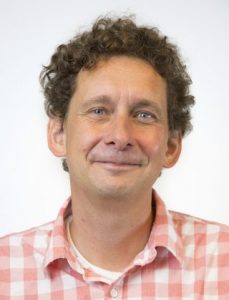 Dr. Cecil Konijnendijk joined the Department of Forest Resources Management at UBC as a professor in Urban Forestry in July. Cecil is a Dutch national who moved to Canada from Sweden, where he headed the landscape department at the Swedish University of Agricultural Sciences.
Dr. Cecil Konijnendijk joined the Department of Forest Resources Management at UBC as a professor in Urban Forestry in July. Cecil is a Dutch national who moved to Canada from Sweden, where he headed the landscape department at the Swedish University of Agricultural Sciences.
He obtained his MSc in forestry from Wageningen University, Netherlands, and did his doctoral work at the University of Joensuu (now the University of Eastern Finland). Cecil has previously also held professorships at the University of Copenhagen and the University of Hong Kong.
His research and teaching focus on urban forestry, urban green space governance, green infrastructure planning, cultural ecosystem sevices, and relations between people and nature in an urban context. Cecil has published widely on this topic and authored several textbooks. He is editor-in-chief of the scientific journal Urban Forestry & Urban Greening and book series editor for Springer’s Future City series.
At UBC Cecil will teach within the urban forestry program. He intends to help build a strong urban forestry research environment at the university.
Dr. Matilda van den Bosch
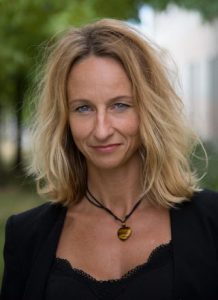 The main goal of Matilda’s teaching is to disseminate knowledge about natural ecosystems’ value for human health and wellbeing. Within this goal lies to stimulate thoughts about and inspire to further learning about the interaction between people and their surroundings and environmental health. The fundament for Matilda’s teaching is her interest for how the environment affects health and that more insights in this are necessary for students in both public health and environmental management. Matilda also holds a belief that this topic could play an important role in the medical curriculum. This could, for example, have implications for developing sustainable health care.
The main goal of Matilda’s teaching is to disseminate knowledge about natural ecosystems’ value for human health and wellbeing. Within this goal lies to stimulate thoughts about and inspire to further learning about the interaction between people and their surroundings and environmental health. The fundament for Matilda’s teaching is her interest for how the environment affects health and that more insights in this are necessary for students in both public health and environmental management. Matilda also holds a belief that this topic could play an important role in the medical curriculum. This could, for example, have implications for developing sustainable health care.
Dr. Pamela Wright
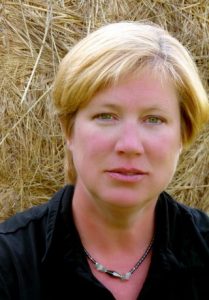 Dr. Wright completed undergraduate degrees in biology and in outdoor recreation management from Lakehead University and M.Sc. and Ph.D. degrees in natural resource management from Ohio State University. Her research focuses on conservation-based approaches to protected areas design, planning and management; managing and monitoring the ecological integrity of protected areas; indigenous tourism; and the social and ecological impacts and benefits of tourism and recreation on wild spaces. Other research and teaching interests include the emerging field of aboriginal tourism and the development of systems-based monitoring approaches for sustainable forest management.
Dr. Wright completed undergraduate degrees in biology and in outdoor recreation management from Lakehead University and M.Sc. and Ph.D. degrees in natural resource management from Ohio State University. Her research focuses on conservation-based approaches to protected areas design, planning and management; managing and monitoring the ecological integrity of protected areas; indigenous tourism; and the social and ecological impacts and benefits of tourism and recreation on wild spaces. Other research and teaching interests include the emerging field of aboriginal tourism and the development of systems-based monitoring approaches for sustainable forest management.
In addition to teaching and working throughout British Columbia and the rest of Canada, Pam has also worked throughout the US and internationally in Central and South America, Southeast Asia and the Middle East.
Pam hosts the BC Protected Areas Research Forum (www.unbc.ca/bcparf), an organization dedicated to strengthening the linkages between research and protected areas planning and management.